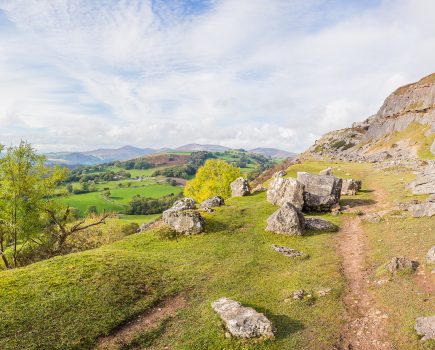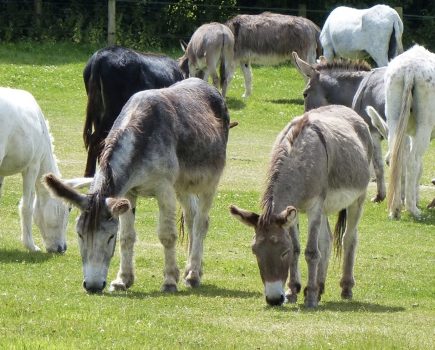Holly Carter and Andrei Szerard have been smallholding for four years. Here, they reflect on 10 of the most important things they have learned about the smallholding life
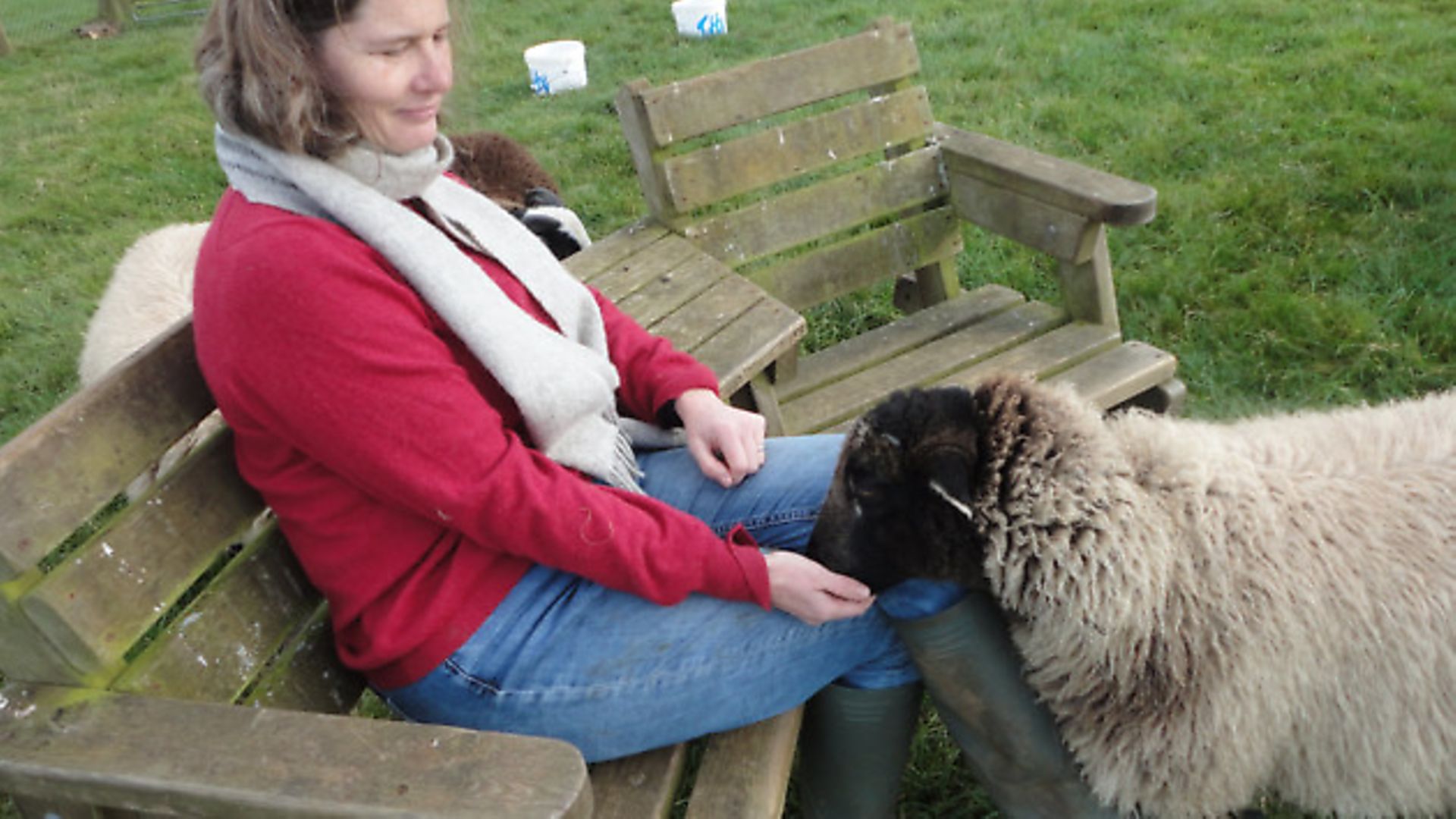
So, where to start? Well, it may seem a bit circular, but the first unexpectedly interesting new thing that we’ve learned is that…
1 Learning new things is interesting
After many years doing the same sort of (non-physical) work, the various challenges presented in running a smallholding came as something of a shock. Almost everything seemed impossible or impossibly frustrating to us impractical urbanites. Eventually, the rusted cogs and gears of our thought processes (lubricated by the WD40 of Google search) slowly clanked back into action and we began to score the occasional little victory. The successful repair of a gearbox problem on the tractor led to much shouting, air-punching and the great amusement of the neighbour surreptitiously watching over the gate.
There are times, however, when it’s impossible to work something out by wit (or half-wit) alone. So…
2 Never be too proud to seek advice
It can be very, very hard to admit defeat, particularly if you suspect that the answer to the problem is ridiculously simple. It almost certainly is (‘That’s ‘cos you’ve got it inside out…’) and the farmer you ask may still be chuckling about it for weeks to come, but asking someone who knows can save a lot of time and energy in the long run. Anyway, what’s a bit of pride?
There is one area where skimping on advice is particularly verboten, however, and that is in connection with animal welfare.
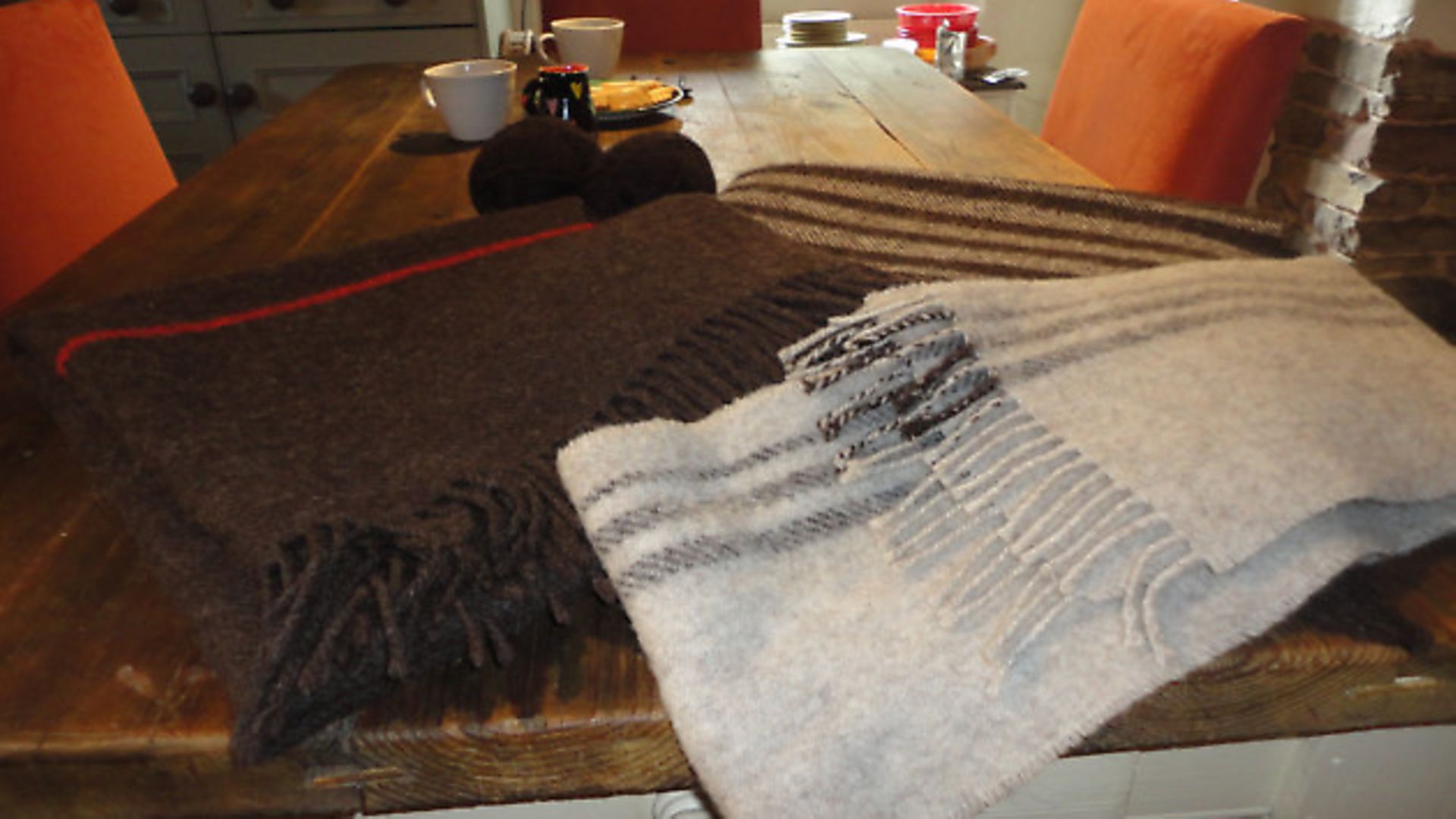
3 A good vet is invaluable
Ours have been brilliant (and patient), not just treating any ailing livestock but teaching us a lot in the process. We agreed early on that we’d never risk the life of an animal – if we were remotely unsure, we’d always call the experts. Whether things turned out to be serious or not, we tried to learn from the experience, asked questions, noted associated symptoms and discussed the treatment options. We’ve never once moaned about the cost of a callout because a) the animals’ welfare always comes first, b) vets are intelligent, educated professionals entitled to make a living and c) we regard it as the price of an education.
Of these lessons, one that really stood out is that early identification of a potential problem is crucial. Which leads to…
4 Livestock need (a lot of) attention
We gave no real thought as to what might be involved in keeping sheep on a day-to-day basis. Despite doing an excellent sheep keeping course, we’d convinced ourselves that they could, fundamentally, look after themselves and that we’d visit occasionally, dispensing sheep nuts and fresh straw for the field shelters. This happy delusion lasted, maybe, a week before one of our flock managed to impale its foot on a thorn. Other issues followed (foot rot, random bramble entanglement, escape…) before the realisation dawned that we needed to visit them at least twice a day. Keeping the flock healthy was the priority, but a happy side-effect was that we started to recognise them as individuals. We saw that they each had personal quirks and habits (they probably thought the same about us) and that there was a definite flock hierarchy (yes, that too). They slowly began to trust us – eating from hand and allowing us to check them over at close quarters.
We’ve tried to apply this to all of the animals that we care for (including pigs and chickens) so that we have a pretty good sense of how they’re all doing, health wise at any time and can intervene, if needed.
Sadly, however, there are occasions when, despite everything, an animal dies. We were very upset when it happened to us for the first time and not particularly consoled by the ‘if you’ve got livestock, you’ll have deadstock’ saying that gets trotted out in response but it is, of course, a reality of country life.
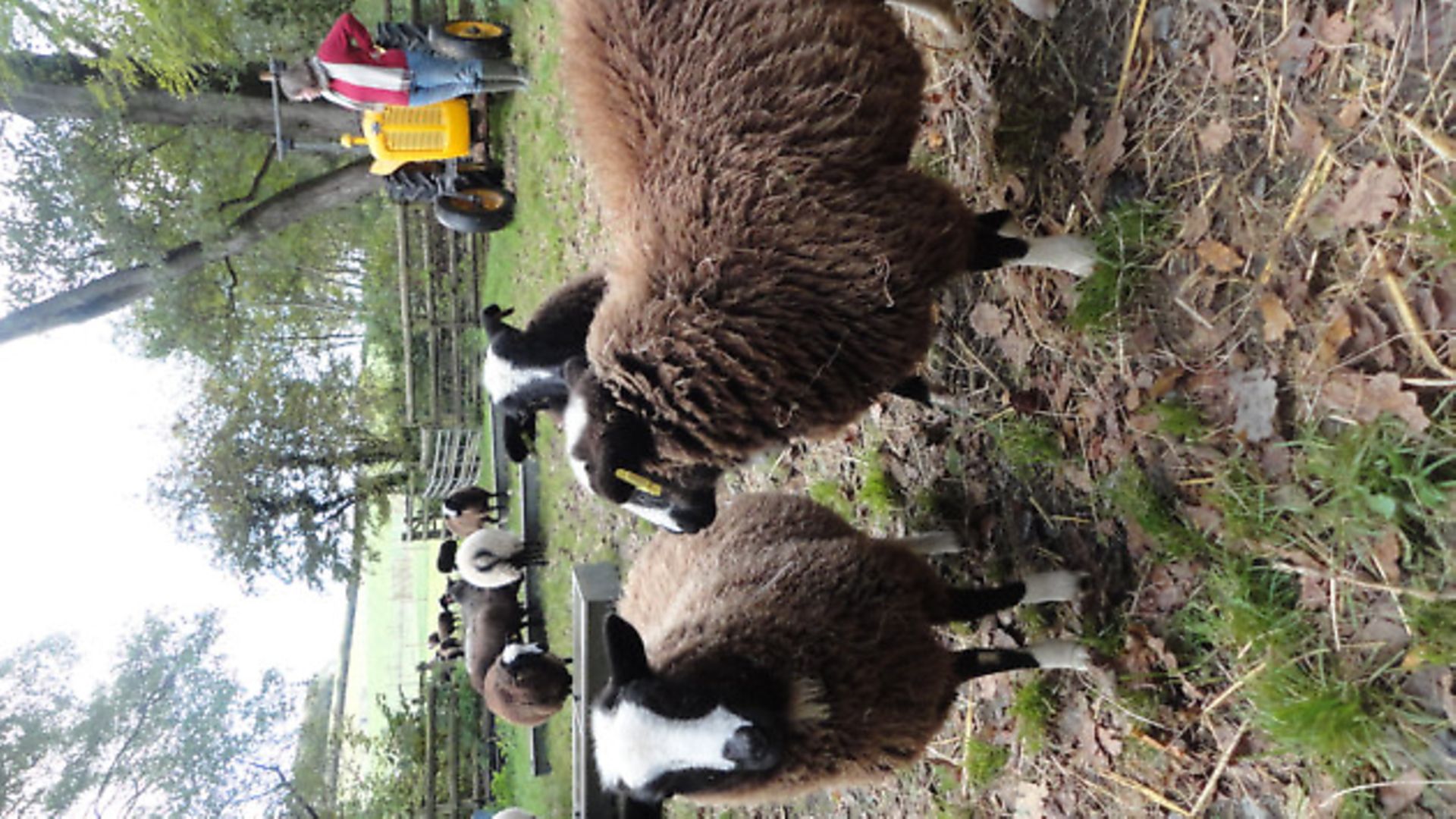
5 There’s quite a bit of death involved…
We have learned to cope with the odd unexpected death, but we’ve also had to learn about the responsibility of taking animals off to the abattoir.
It’s an area that’s caused our moral aerials to twirl more than any other. We love our animals but enjoy (really enjoy) eating meat. It’s probably impossible to square the circle, so we’ve settled on a compromise that works for us. We usually only eat meat from animals that we’ve raised ourselves, that have had the best possible life and least stress-filled ending. We visited several local abattoirs to check them out before we took our first set of pigs (rather like concerned parents assessing schools), researched routes, timings and had endless discussions about ensuring the animals’ welfare. Although we’ve now been through it many times, the day we dust down the trailer in preparation for that final trip always causes a big twang of the heartstrings and tensions (amongst the humans at least) rise until the process is complete.
6 … but there are consolations
If anything can make it all worthwhile, however, it is sitting down some weeks later to the finest, most ethical, most delicious joint of meat imaginable. We take enormous pride in giving the animals a good life and raise a glass to them in gratitude. The trade-off between these emotional highs and lows is something that (again) we hadn’t really considered but we realise now that it is one of the defining features of our life here.
7 It’s important to take time to enjoy it.
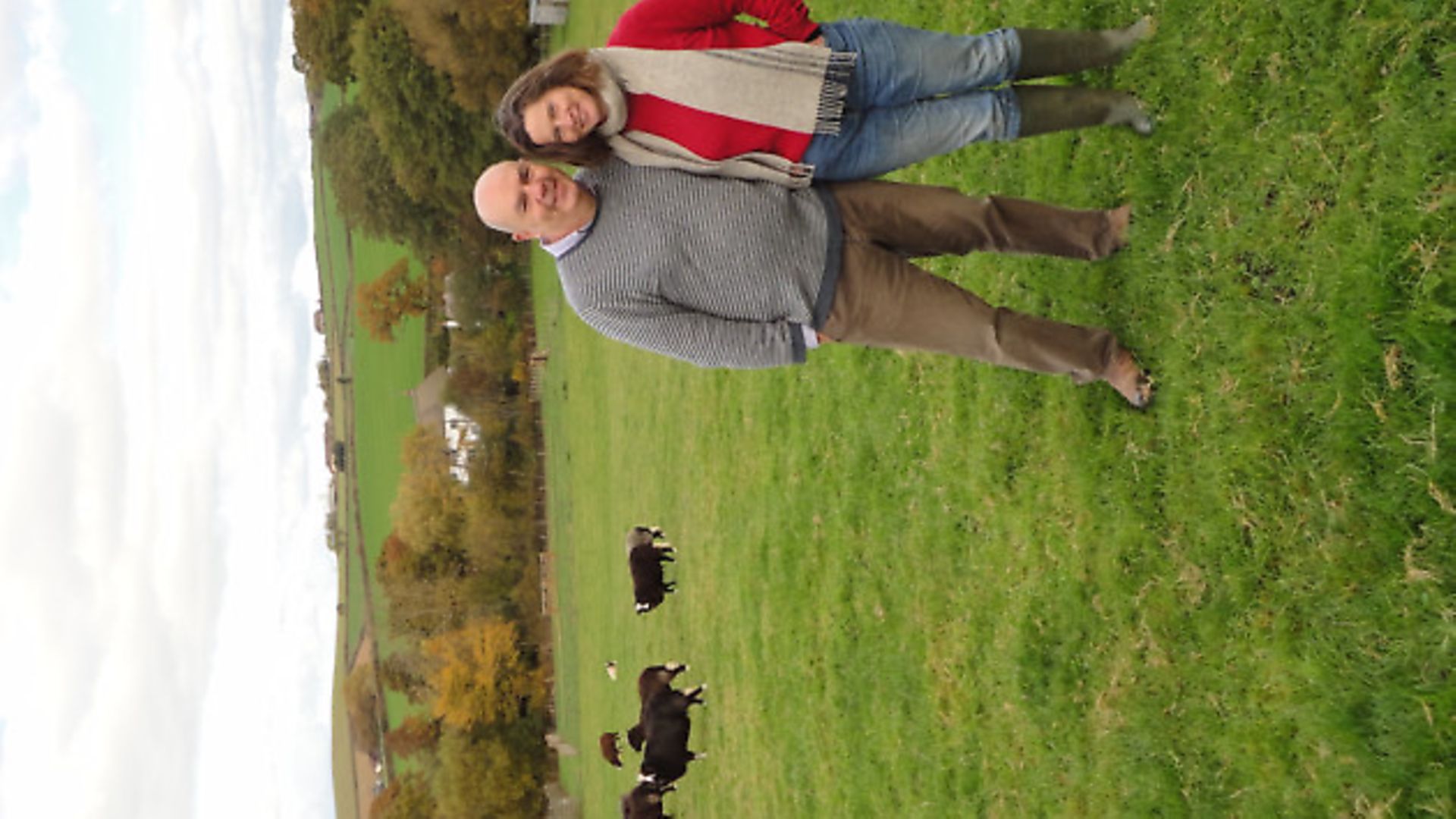
We have certainly not missed the modern curse of deadlines, diaries and ‘to-do’ lists. The liberation of the breakfast time ‘What shall we do today?’ conversation was profound – rather like re-discovering ‘fun’. We also decided that, although there’s plenty of boring stuff to do (there’s always stuff to do), it would be a shame not to take the chance to appreciate the other, unexpectedly joyful bits and ‘live in the moment’, as they say – after all, no one was going to sack us for idling. Whether it’s been taking time to watch lambs gambolling in the field, eating peas fresh out of the pod or collecting warm eggs from the nesting box, we feel enormously privileged to have had such experiences.
There is a price, however.
8 Money matters
It’s tempting to think that moving to a smallholding will make financial planning simpler. Sadly, we’ve found that it doesn’t necessarily work that way. Freedom from the 9-5 also means divorce from a regular income and, although we were lucky enough to be able to downsize, and are partly self-sufficient, we still need money to pay the bills. It’s easy to overlook how much it costs to keep animals – feed, fencing, bedding all mount up and that’s before we get to us humans. We’ve managed to cope a) by doing some part-time work that interests us and b) by discovering the joy of ‘Not Buying Things’.
That’s not to say that we’ve turned into misers or that we don’t have the ‘What would we do if we won a million’ chat, it’s just that our fantasy purchases would now probably involve tractor attachments and sheep handling equipment. It’s just as well we agree because…
9 Teamwork is essential
Before we started out on this, we were acutely aware that such a profound change in lifestyle came with considerable risk. One of us may have simply disliked the reality of country life and so we agreed to give each other a ‘veto’ so that if one of us wasn’t happy, the other would be willing to return to city life without complaint. Neither of us remotely considered using it (even when it rained, biblically, for the first six months) but the option was there. As a couple, we’ve appreciated the time we get to spend with each other and how important it is to make mutually agreed decisions and future plans. We’ve never felt as though we’re ‘going it alone against the world’, however, because of the wealth of help and support that we’ve received locally.
10 Become part of the community
When we announced our move, many London friends gave us dire warnings about ‘country folk’ being unwelcoming and isolating incomers (they tended to be the sort of Londoners who never spoke to their neighbours…). The reality is that we’ve found completely the opposite. From our very first day when neighbours came down the track carrying a (rather good) bottle of wine, we’ve only experienced generosity, goodwill and humour. We now have a much more diverse set of friends than we had in the city (where they tended to be old college friends, work colleagues or immediate neighbours) and we’ve also realised that the population of the countryside isn’t as static as commonly thought. There are many other newcomers (‘blow-ins’) like us who have arrived and been warmly accepted into the community. According to our 85-year-old farming neighbour, it’s always been that way (his family originally came from Cornwall…) and long may it continue.
And finally, rounding off our Top 10, in true Spinal Tap style is:
11 Expect the unexpected
Just when everything seems to be in order, just when everything appears under control, the God of Random will come along to upturn the tables. Falling trees, exploding electrical transformers, pig escapes, it’s all happened to us – and usually at the most inconvenient time. Shaking a fist and howling at the sky gives some temporary relief but the only reasonable response is to accept that these things happen. It’s a problem. Problems get fixed and (as an elderly gentleman of our acquaintance used to say) ‘It’s all experience’.
After all, if we’d wanted predictability, we’d have stayed in the city, wouldn’t we?
Holly Carter and Andrei Szerard’s smallholding is in Mid Devon. Their website is www.smilingsheep.co.uk
or follow them on Facebook www.facebook.com/thesmilingsheep/
Image(s) provided by:
Holly Carter and Andrei Szerard



